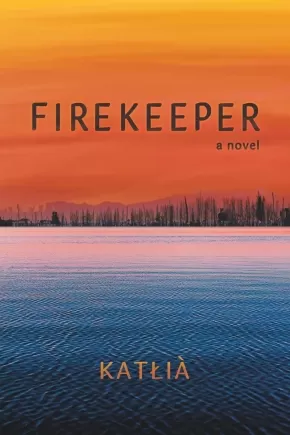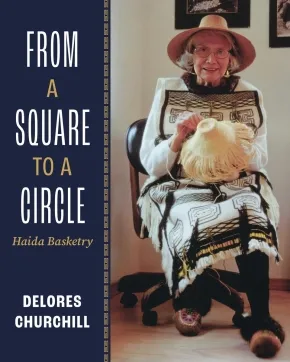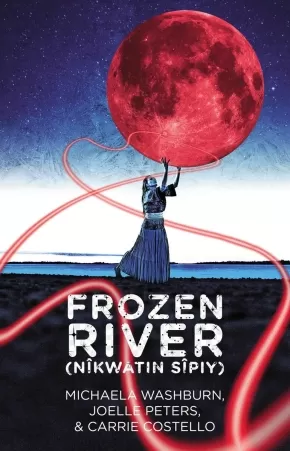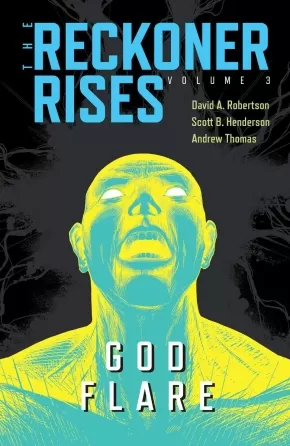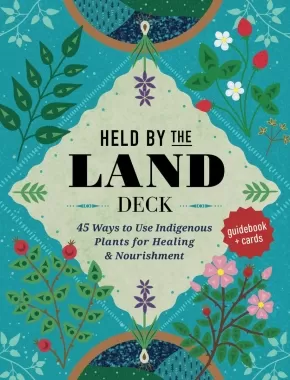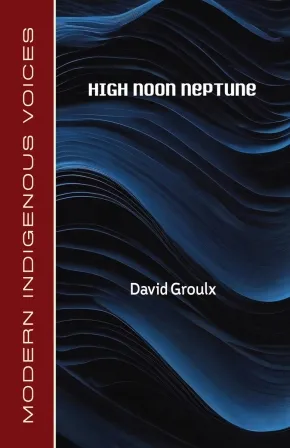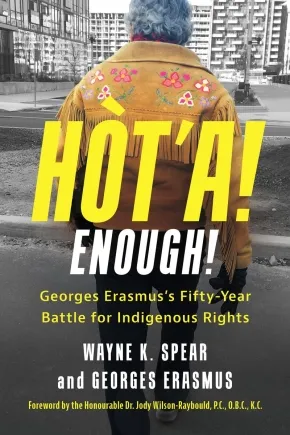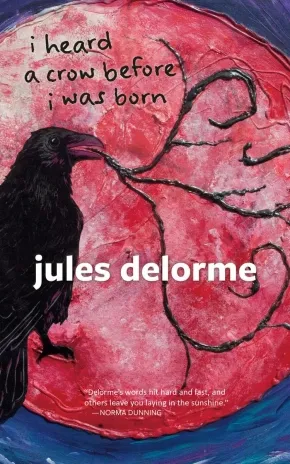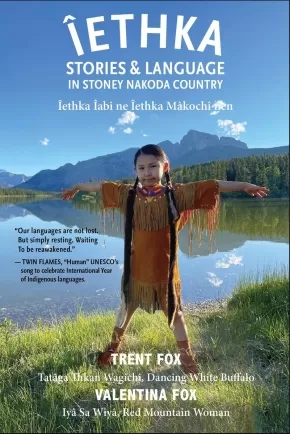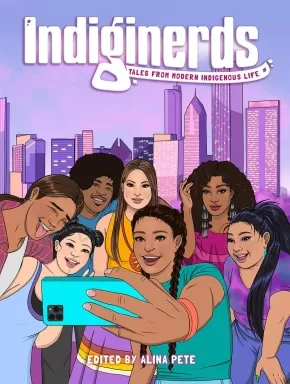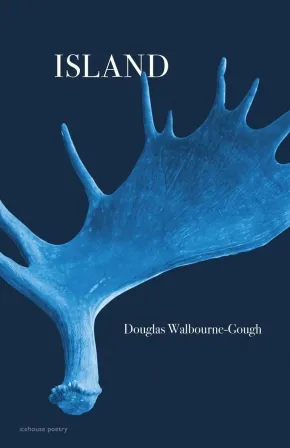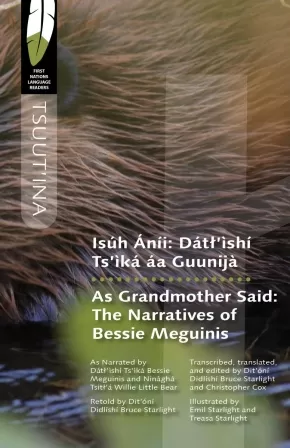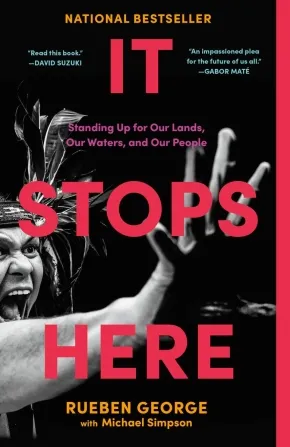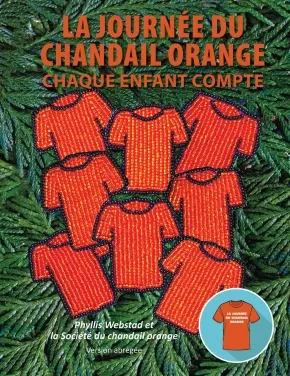
First Nations
61
-
75
of
653 Results;
Sort By
Go To
of 44
Firekeeper: A Novel
$24.00
Format:
Paperback
Text Content Territories:
Indigenous Canadian;
Reading Level: N/A
ISBN / Barcode: 9781773636573
Synopsis:
Synopsis:
Nyla has an affinity to fire. A neglected teen in a small northern town—trying to escape a mother battling her own terrors—she is kicked out and struggles through life on the streets. Desperate for love, Nyla accidentally sets fire to her ex’s building and is then incarcerated for arson. Through community-led diversion, Nyla finds herself on a reserve as their firekeeper. But when climate change–induced wildfires threaten her new home, she knows intimately how to fight back.
The fourth book from acclaimed writer Katłıà brings a Northern Indigenous perspective to the destructive effects of ongoing colonialism. Displaying Katłıà’s enthralling storytelling style, Firekeeper is a coming-of-age tale that addresses intergenerational trauma by reclaiming culture, belonging and identity.
Join Nyla on her healing journey through the fire to sacred waters.
Reviews
“Katłıà’s Firekeeper is an enchanting page-turner of a novel that captured my heart from start to finish. It’s an essential story about finding spirit, family, and home, told through one of the strongest and most authentic protagonists I’ve ever read. I felt like I was right there with Nyla through all her tragedies and triumphs, which is testament to Katłıà’s smooth and heartfelt prose. This book is a celebration of the resilient spirit and leadership of Indigenous women.”—Waubgeshig Rice, author of Moon of the Crusted Snow
“Written with searing truth and genuine heart, breathtaking at times in its description of life, living, dying and death - Firekeeper is a loving testament to the power of kindness and of gentleness. Piercing and honest, with an eye for detail in chaos, the writing and voice are humble and humbling. This is Katłı̨̀ą’s best work to date.”— Tracey Lindberg, writer, scholar, Indigenous Rights activist and the author of Birdie
Additional Information
176 pages | 5.50" x 8.50" | Paperback
From a Square to a Circle: Haida Basketry - Delores Churchill's Memories of Learning to Weave
$34.95
Format:
Paperback
Text Content Territories:
Indigenous Canadian; First Nations; Haida;
Reading Level: N/A
ISBN / Barcode: 9781990776854
Synopsis:
Synopsis:
Delores Churchill, Haida weaver, shares the stories of her life, her culture and the importance of passing cultural knowledge from one generation to the next. Told with humility, humour and deep respect, From a Square to a Circle is a testament to the values of her people, a technical guide to her masterful weaving skills and a gift to the reader at every point along her journey.
Part memoir, part how-to guide, this book shines light on Delores’s weaving teachers, including her strong-minded mother Selina (Ilst’ayaa), whose teachings Delores once resisted as a child. The Haida are connected to weaving through their history, which goes back thousands of years ago as shown through discoveries like the 4,000-year-old baskets at south Baranof.
Walk with Delores as she harvests cedar bark for baskets, Selina teaching “by modelling and then leaving the learner to imitate.” Learn the weaving harvest and preparation terminology. Follow the steps of how to prepare cedar bark, harvest spruce roots, and learn natural dye recipes. Photos and diagrams are visual aids that accompany the steps to Haida weaving techniques and instructions.
Having passed her skills on to hundreds of people, believing that “weaving belongs to all of us,” Delores wishes to share the knowledge of basketweaving where beginners and skilled weavers are able to express their distinct selves, just as every coastal Indigenous weaving style is unique. The love for basketweaving displayed in Delores’s writing is sure to make readers yearn to try their own hand at the craft.
Additional Information
256 pages | 8.00" x 10.00" | 240 Photographs | Paperback
Frozen River (nîkwatin sîpiy)
$18.95
Format:
Paperback
Text Content Territories:
Indigenous Canadian; First Nations; Anishinaabeg; Ojibway; Cree (Nehiyawak); Métis;
ISBN / Barcode: 9780369104892
Synopsis:
Synopsis:
Exploring reconciliation and connection through a story that spans seven generations, Frozen River (nîkwatin sîpiy) tells the story of two eleven-year-olds through the eyes of Grandmother Moon. Eilidh and Wâpam are born under the same blood moon, but Eilidh was born in Scotland and Wâpam in Kihci-Manito kâ ayapit, now known as Manitoba. After sailing across the ocean in hopes of a more prosperous life, Eilidh meets Wâpam deep in the forest, and the two become instant friends. Coming from vastly different worlds, Eilidh and Wâpam decide to teach each other about their ways of life. But when a sacred promise between them is broken, the relationship among cultures becomes jeopardized for generations to come.
Frozen River (nîkwatin sîpiy) shows audiences that an openness to learn from those who have protected and honoured the waterways for centuries can lead to healing and reconciliation.
Awards
- 2021 Sharon Enkin Plays for Young People Award winner
Reviews
"The show’s script cleverly makes important issues digestible for young audiences."— Van City Vince
Educator Information
Recommended for ages 8 to 14.
Additional Information
88 pages | 5.37" x 8.38" | Paperback
Fur Trade Nation: An Ojibwe's Graphic History
$42.16
Format:
Hardcover
ISBN / Barcode: 9781962910002
Synopsis:
Synopsis:
We clothed the royals. We fed the worker. We guided the traveler. We abetted the soldier. We are not afraid to love. So begins Carl Gawboy's groundbreaking graphic history of the Fur Trade Era. From 1650 to 1850, the Ojibwe Nation was the epicenter of the first global trading network. Trade goods from Africa, Asia, Europe, and South America flowed into the Great Lakes region, floating along Ojibwe waterways in birchbark canoes paddled by mixed-race Voyageurs. Gawboy offers a fresh perspective on the fur trade era, placing Ojibwe technology, kinship systems, cultural paradigms, and women at the heart of this remarkable era, where they have always belonged.
Additional Information
202 pages | 8.25" x 11.00" | Hardcover
God Flare
$23.00
Artists:
Format:
Paperback
Text Content Territories:
Indigenous Canadian;
ISBN / Barcode: 9781774920442
Synopsis:
Synopsis:
Eva and Cole are back just in time to face Mihko’s latest threat: the terrifying results of human experimentation.
Cole and Eva are reunited once more. A new terror looms as Mihko Laboratories latest human experiments are about to be unleashed. Cole is on the long road to recovery, but he’s still struggling with survivor’s guilt. He must stay focused as he, Eva, and their friends prepare for the final showdown with Mihko.
After the events of Version Control, Brady’s mind is fractured, and he can’t distinguish between what really happened and what Mikho made him believe. Eva and Cole may have to face this terrifying threat without him. It’s a grim prospect, but a new discovery might just change everything: God Flare.
Will Brady recover enough to join the fight? Can Cole come to terms with his abilities in spite of his PTSD? And will God Flare help even the odds against Mihko?
Reviews
The art style is realistic and gritty, reflecting the serious and dystopian tone of the story. Colors are dark and muted, actions are clear, and special effects of the supernatural pop off the page, a marked contrast to more normal backgrounds and objects.” — Youth Services Book Review
Educator & Series Information
Recommended for grades 8 to 12.
This book is part of the graphic novel series, The Reckoner Rises, a continuation of The Reckoner trilogy. It is Book 3 in the series.
Additional Information
72 pages | 6.50" x 10.00" | Paperback
Held by the Land Deck: 45 Ways to Use Indigenous Plants for Healings & Nourishment - Guidebook + Cards
$25.99
Format:
Paperback
Text Content Territories:
Indigenous Canadian; First Nations; Salish; Coast Salish; Squamish;
Reading Level: N/A
ISBN / Barcode: 9781577154440
Synopsis:
Synopsis:
Have Indigenous plant knowledge at your fingertips with this gorgeously illustrated card deck from Leigh Joseph, an ethnobotanist and a member of the Squamish Nation.
Plants can be a great source of healing as well as nourishment, and the practice of growing and harvesting from trees, flowering herbs, and other plants is a powerful way to become more connected to the land. The Indigenous Peoples of North America have long traditions of using native plants as medicine as well as for food. Held by the Land Deck includes 45 cards of indigenous plants and their properties and a 48-page booklet to guide you along the way. Here are some of the things you will find:
- Tips to build your own home apothecary
- Notes on how to mindfully harvest and connect to the land you’re on
- Recipes for infused oils and salves
- A botanical glossary to help out with some of the more technical language
- Checklists for safe and sustainable harvesting
This beautifully illustrated card deck includes plants that are culturally significant to the Pacific Northwest, including Western Red Cedar, Devil’s Club, Broad-Leaved Plantain, Camas, Wapato, and Red Laver. Special features in the booklet include recipes for food and beauty products along with stories and traditions around the plants.
This elegant, full-color card deck and booklet is your go-to guide for Indigenous plants and will give you new insights into the power of everyday nature.
Additional Information
48 pages | 4.50" x 5.90" | 45 Cards and 48-Page Booklet
High Noon Neptune
$19.95
Format:
Paperback
Reading Level: N/A
ISBN / Barcode: 9781772312225
Synopsis:
Synopsis:
High Noon Neptune is a powerful poetry collection that delves into important issues of loss, love, class, and capitalism. Throughout this book, the reader is taken on a journey of survival, where the intersections of identity and oppression are explored with clarity and reverence. The poems shed light on the complexities of living in a society that is rife with discrimination and inequality, and the battles that individuals face to survive within these intersecting systems. This book fearlessly navigates through societal and personal struggles with a sharp wit and bold defiance. With each poem, David Groulx confronts and challenges the societal norms and structures that perpetuate injustice and inequality. High Noon Neptune offers a raw and unapologetic perspective on the realities of navigating life as a marginalized individual. This poetry collection is a powerful testament to the resilience and strength of those who refuse to be silenced and continue to fight for survival.
Educator & Series Information
This book is part of the Modern Indigenous Voices series.
Additional Information
88 pages | 5.50" x 8.50" | Paperback
Hòt'a! Enough!: Georges Erasmus's Fifty-Year Battle for Indigenous Rights
$28.99
Format:
Paperback
Text Content Territories:
Indigenous Canadian; First Nations; Dene;
Reading Level: N/A
ISBN / Barcode: 9781459752900
Synopsis:
Synopsis:
The political life of Dene leader Georges Erasmus - a radical Native rights crusader widely regarded as one of the most important Indigenous leaders of the past fifty years.
For decades, Georges Erasmus led the fight for Indigenous rights. From the Berger Inquiry to the Canadian constitutional talks to the Oka Crisis, Georges was a significant figure in Canada's political landscape. In the 1990s, he led the Royal Commission on Aboriginal Peoples and afterward was chair and president of the Aboriginal Healing Foundation, around the time that Canada's residential school system became an ongoing frontpage story.
Georges's five-decade battle for Indigenous rights took him around the world and saw him sitting across the table from prime ministers and premiers. In the 1980s, when Georges was the National Chief of the Assembly of First Nations, he was referred to as the "Thirteenth Premier." This book tells the personal story of his life as a leading Indigenous figure, taking the reader inside some of Canada's biggest crises and challenges.
Awards
- 2025 Indigenous Voices Awards - Prose in English Award
Additional Information
320 pages | 6.00" x 9.00" | 57 b&w illustrations | Paperback
i heard a crow before i was born
$22.95
Format:
Paperback
Reading Level: N/A
ISBN / Barcode: 9781773104089
Synopsis:
Synopsis:
i heard a crow before i was born.
i heard tsó:ka’we before i was born.
i heard a crow before i was born opens with a dream-memory that transforms into a stark, poetic reflection on the generational trauma faced by many Indigenous families. Jules Delorme was born to resentful and abusive parents, in a world in which he never felt he belonged. Yet, buoyed by the love shown to him by his tóta (grandmother) and his many animal protectors, Delorme gained the strength to reckon with his brutal childhood and create this transformative and evocative memoir.
Across chapters that tell of his troubled relationships, Delorme unwraps the pain at the centre of his own story: the residential schools and the aftershocks that continue to reverberate.
In this stunning testament to the power of storytelling — to help us grieve and help us survive — Delorme tells the story of his spirit walk as he embraces the contradictions of his identity. As he writes, “i heard a crow before i was born is a man looking back, and dreaming back, and seeing that life, in whatever form it takes, however harsh it might seem, is beautiful.”
Reviews
“Jules Delorme is an unconventional storyteller and writer. His exploration of self through the eyes of being ‘half white on the reserve and half Indian in the city’ speaks to his vast experience as a Kanien’kehá:ka man in Canada. Jules has lived and continues to live the life of a man who has leapt over every hurdle that life places in front of him. To be able to write of his life in the way that he has shows his determination. Thank you, Jules, for taking us all on your spirit walk.” — Norma Dunning, award-winning author of Tainna, July 2024
“Sometimes difficult, always honest, i heard a crow before i was born takes us on a journey of trauma, and then healing. Told in a storytelling style, Delorme’s is a tale of survival.” — Drew Hayden Taylor, author of Motorcycles & Sweetgrass, July 2024
Additional Information
164 pages | 5.00" x 8.00" | Paperback
Îethka: Stories & Language in Stoney Nakoda Country
$37.50
Format:
Paperback
Text Content Territories:
Indigenous Canadian; First Nations; Stoney-Nakoda (Nakota);
ISBN / Barcode: 9781990735455
Synopsis:
Synopsis:
This book features the Stoney Nakoda First Nation language in context and in action. The book contains a collection of stories by Trent and Valentina Fox, with each teaching culminating in a learning section. To assist in nuances of the language, the book also includes audio components as web links. The Îethka Stoney Nakoda People are an integral part of the Treaty 7 group of Indigenous Nations in Southern Alberta. Their spoken language is part of the Dakota-Sioux linguistic group.
Educator Information
Recommended for ages 14 to 18.
Additional Information
144 pages | 6.00" x 9.00" | Paperback
Indiginerds: Tales from Modern Indigenous Life
$30.50
Artists:
Format:
Paperback
Text Content Territories:
Indigenous Canadian;
ISBN / Barcode: 9781638991335
Synopsis:
Synopsis:
First Nations culture is living, vibrant, and evolving, and generations of Indigenous kids have grown up with pop culture creeping inexorably into our lives. From gaming to social media, pirate radio to garage bands, Star Trek to D&D, and missed connections at the pow wow, Indigenous culture is so much more than how it’s usually portrayed. Indiginerds is here to celebrate those stories!
Featuring an all-Indigenous creative team, Indiginerds is an exhilarating anthology collecting 11 stories about Indigenous people balancing traditional ways of knowing with modern pop culture. Includes work by Alina Pete, PJ Underwood, Kameron White, Rhael McGregory, and many more.
Educator Information
Recommended for ages 12 to 18.
Full Creator Listing: Tate Allen, Ida Aronson, Jordanna George, Raven John, Nipinet Landsem, Rhael McGregor, Sam “Mushki” Medlock, Alina Pete, Wren Rios, PJ Underwood, Kameron White
Additional Information
120 pages | 6.62" x 10.25" | Paperback
Island
$22.00
Format:
Paperback
Text Content Territories:
Indigenous Canadian; First Nations; Mi'kmaq (Mi'gmaq);
Reading Level: N/A
ISBN / Barcode: 9781773103396
Synopsis:
Synopsis:
“Canada rejected our applications for enrolment in the Qalipu First Nation. Initially, I was relieved by the rejection. I’d watched my hometown divide itself — are you Mi′kmaq or settler? Mi′kmaq or not Mi′kmaq enough?”
Centred around the Newfoundland Mi'kmaq experience in the wake of the controversial Qalipu First Nation enrolment process, Island wades through the fracture and mistrust that continues to linger in many communities. In this new collection, Douglas Walbourne-Gough expands upon issues of identity and history that he introduced in Crow Gulch, offering a deeply personal and equally beautiful exploration of Mi'kmaw and Newfoundland identity.
Walbourne-Gough’s narrative poems trace the formation of identity, not through status documentation, but through its deeper roots in childhood memories, family, spirituality, and dreams. Throughout this collection, he approaches life in fragments — snuggling into his nan’s sealskin snowsuit, learning Mi'kmaq from an app, or the myriad of complex emotions that come with receiving a status card — and watches them transform into pieces of an everlasting puzzle. Island reckons with an often-ignored, yet persistent, effect of colonialism — fractured identities.
Additional Information
80 pages | 5.50" x 8.50" | Paperback
Isúh Áníi / As Grandmother Said: Dátl'ìshí Ts'ìká áa Guunijà / The Narratives of Bessie Meguinis
$24.95
Format:
Paperback
Text Content Territories:
Indigenous Canadian; First Nations; Dene; Tsuut’ina (Tsuu T'ina, Sarcee);
Grade Levels: 12; University/College;
ISBN / Barcode: 9780889779853
Synopsis:
Synopsis:
The first book published in Tsuut’ina—a critically endangered language—in over a century!
With fewer than 150 speakers, Tsuut’ina is a critically endangered language. Isúh Áníi / As Grandmother Said brings together nine traditional narratives and historical accounts in the Tsuut’ina language, originally narrated by Elders Dátł’ìshí Ts’ìká Bessie Meguinis (1883–1987) and Ninàghá Tsìtł’á Willie Little Bear (1912–1989). At once an act of language preservation and a learning resource, each story is retold in Tsuut’ina by Dit’óní Didlíshí Dr. Bruce Starlight and is presented with English translations and a Tsuut’ina-to-English glossary.
The narratives included in this collection cover considerable ground, ranging from the creation of the world in the caring hands of Xàlítsa-tsii and his animal helpers, to accounts of separation, migration, and cross-cultural contact that mark major turning points in Tsuut’ina history, and to important cultural and ceremonial items and practices that the Tsuut’ina Nation maintains to this day.
These stories will be of lasting value to Tsuut’ina language learners and teachers, and will share the legacy of Elders Bessie Meguinis and Willie Little Bear with generations of Tsuut’ina to come.
Educator & Series Information
This book is part of the First Nation Language Readers series. With a mix of traditional and new stories, each First Nations Language Reader introduces an Indigenous language and demonstrates how each language is used today.
Additional Information
186 pages | 5.50" x 8.50" | Paperback
It Stops Here: Standing Up for Our Lands, Our Waters, and Our People (PB)
$24.00
Format:
Paperback
Text Content Territories:
Indigenous Canadian; First Nations; Salish; Coast Salish; Tsleil-Waututh;
ISBN / Barcode: 9780735242821
Synopsis:
Synopsis:
A personal account of one man’s confrontation with colonization that illuminates the philosophy and values of a First Nation on the front lines of the fight against an extractive industry, colonial government, and threats to the life-giving Salish Sea.
It Stops Here is the profound story of the spiritual, cultural, and political resurgence of a nation taking action to reclaim their lands, waters, law, and food systems in the face of colonization. In deeply moving testimony, it recounts the intergenerational struggle of the Tsleil-Waututh Nation to overcome colonial harms and the powerful stance they have taken alongside allies and other Indigenous nations across Turtle Island against the development of the Trans Mountain Pipeline—a fossil fuel megaproject on their unceded territories.
In a firsthand account of the resurgence told by Rueben George, one of the most prominent leaders of the widespread opposition to the Trans Mountain Pipeline expansion, It Stops Here reveals extraordinary insights and revelations from someone who has devoted more than a decade of his life to fighting the project. Rueben shares stories about his family’s deep ancestral connections to their unceded lands and waters, which are today more commonly known as Vancouver, British Columbia and the Burrard Inlet. He discloses how, following the systematic cultural genocide enacted by the colonial state, key leaders of his community, such as his grandfather, Chief Dan George, always taught the younger generations to be proud of who they were and to remember the importance of their connection to the inlet.
Part memoir, part call to action, It Stops Here is a compelling appeal to prioritize the sacred over oil and extractive industries, while insisting that settler society honour Indigenous law and jurisdiction over unceded territories rather than exploiting lands and reducing them to their natural resources.
Additional Information
288 pages | 5.13" x 7.98" | 31 b+w images throughout | Paperback
La journee du chandail orange: Chaque enfant compte
$19.99
Format:
Paperback
Text Content Territories:
Indigenous Canadian; First Nations; Inuit; Métis;
ISBN / Barcode: 9781778540400
Synopsis:
Synopsis:
A special abridged version of the award-winning book Orange Shirt Day: September 30th. Orange Shirt Day, observed annually on September 30th, is also known as the National Day for Truth and Reconciliation. It is an official day to honour Residential School Survivors and their families, and to remember the children who did not come home. What was initially envisioned as a way to keep the conversations going about all aspects of Residential Schools in Williams Lake and the Cariboo Region of British Columbia, Canada, has now expanded into a movement across Turtle Island and beyond. Orange Shirt Day: Every Child Matters aims to create champions who will walk a path of reconciliation and promote the message that 'Every Child Matters'. This version also explores a number of important topics including the historical, generational, and continual impacts of Residential Schools on Indigenous Peoples, the journey of the Orange Shirt Day movement, and how you can effectively participate in the National Day for Truth and Reconciliation. With end of chapter reflection questions and a series of student art submissions, readers are guided to explore how they, and others, view and participate in Residential School reconciliation.
Educator Information
Recommended for ages 12 to 17.
This book is available in English: Orange Shirt Day: Every Child Matters: Condensed Edition
Additional Information
112 pages | 8.46" x 10.97" | Paperback
Sort By
Go To
of 44

